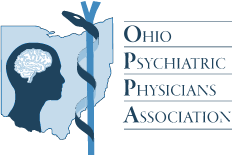Complete Story
07/16/2020
AACAP and APA Statement on Reopening Schools This Fall
Needs of Students During the COVID-19 Era: American Academy of Child and Adolescent Psychiatry (AACAP) and American Psychiatric Association (APA) Detail Steps Necessary for Safely Reopening Schools This Fall
WASHINGTON D.C. JULY 15, 2020 – The American Academy of Child and Adolescent Psychiatry (AACAP) and the American Psychiatric Association (APA) recognize that education, including school attendance, is an essential component of successful and healthy development for all children and adolescents. Access to universal, high-quality education is always the goal, but is especially true in the COVID-19 era, when many have had their education compromised and experience higher levels of stress from social isolation.
We recommend that school reopening plans proceed with appropriate care and include the following precautions:
- Public health agencies must make recommendations about returning to school in the classroom, based on scientific evidence and local community circumstances, devoid of politics, with careful and thoughtful decision-making, and with the best interest of students, teachers and staff. One size cannot fit all.
- The return to school must include appropriate protections for all children, families, school personnel, and other members of the community.
- When classroom-based education is not possible, techniques that optimize social interactions alongside educational objectives should be prioritized.
- The education of children with special needs requires additional resources to adapt instructional techniques. This vulnerable population includes children with emotional, learning, and physical disabilities as well as those in foster care, poverty, and for whom English is a second language, to mention but a few.
- The mental health of students must be continually addressed because mental health is an intrinsic part of overall health and well-being. This includes the opportunity for mental health care for all educators, and school staff, as well as parents who are teaching at home.
- Fairness and equity require that sufficient access to equipment, services, and technology, to address systemic and/or cultural disadvantages in educational and mental health supports, amplified by COVID-19, are provided.
- Additional financial support to schools and the community is needed for a safe and supportive educational process. This increase in funding should address the structural requirements necessary to create safe environments to ensure a full array of education and mental health supports.
- All necessary components must be in place to ensure effective systems for the early identification of and intervention for the increased number of high-risk students as a result of the pandemic.
In these uncertain times, making educational decisions based on science and community circumstances ensures the mental health needs of our children and adolescents are being addressed, allowing them to feel engaged, safe, secure, supported, and loved.
American Psychiatric Association
The American Psychiatric Association, founded in 1844, is the oldest medical association in the country. The APA is also the largest psychiatric association in the world with more than 38,800 physician members specializing in the diagnosis, treatment, prevention and research of mental illnesses. APA’s vision is to ensure access to quality psychiatric diagnosis and treatment. For more information please visit www.psychiatry.org.
American Academy of Child and Adolescent Psychiatry
The American Academy of Child and Adolescent Psychiatry promotes the healthy development of children, adolescents, and families through advocacy, education, and research. Child and adolescent psychiatrists are the leading physician authority on children’s mental health. For more information, please visit www.aacap.org.

